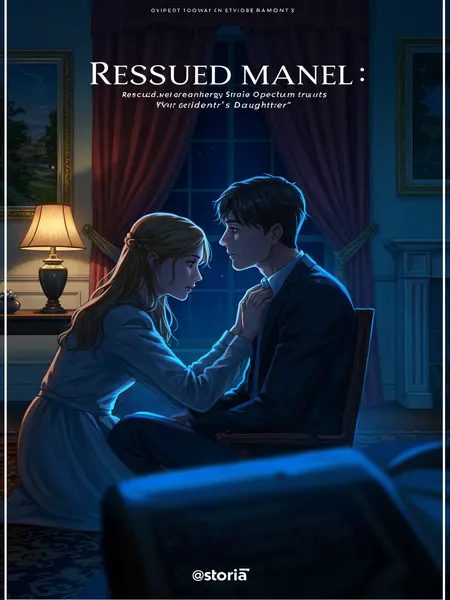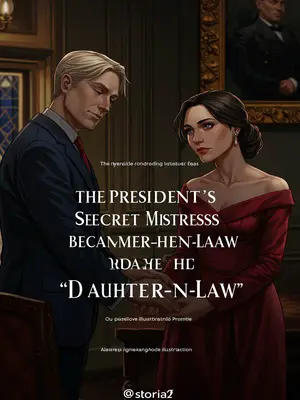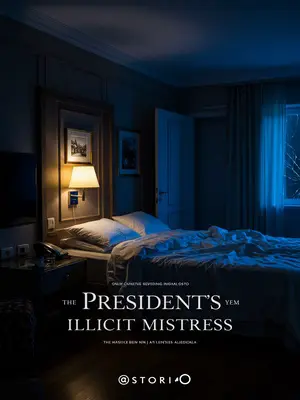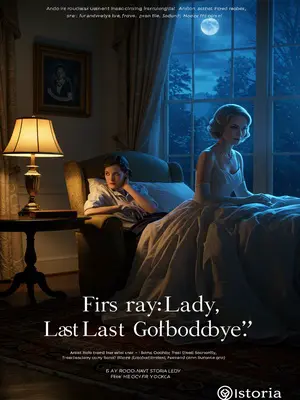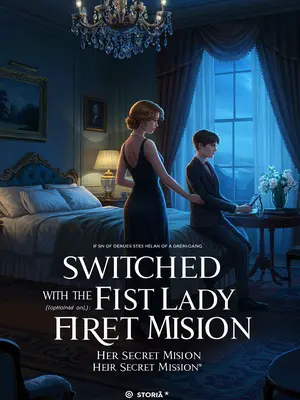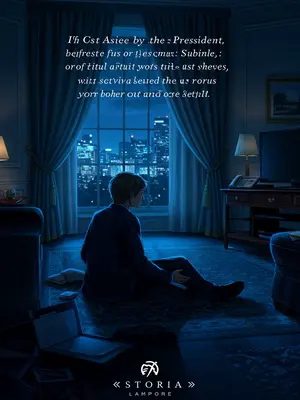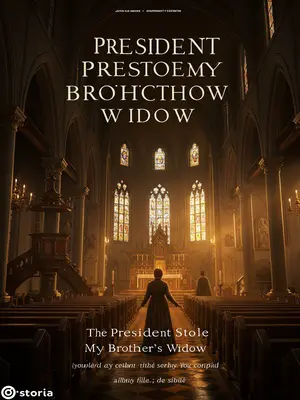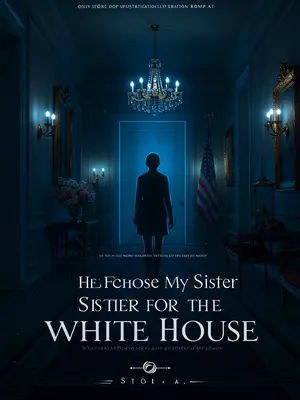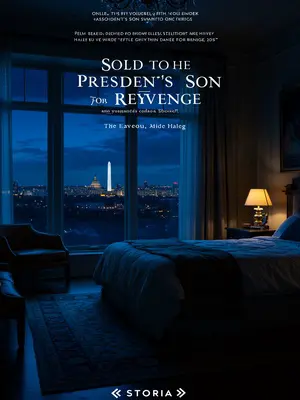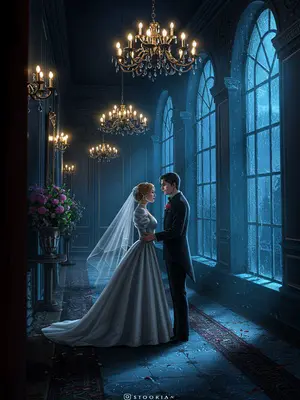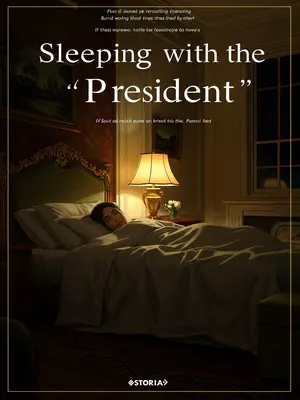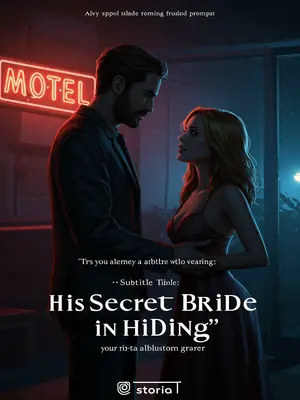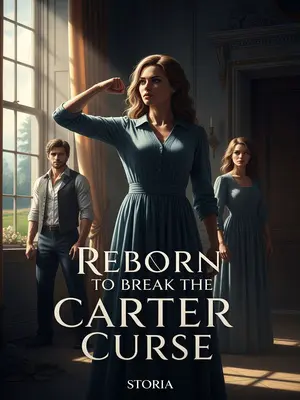Chapter 4: A Child’s Question, a Dangerous Truth
Since the founding of the country, deposed presidents rarely survived into the next administration. Even if they did, it was only to be humiliated.
It was an unwritten rule—when the new regime took power, the old one faded quietly into history. Or, more often, was erased by it.
Daniel Harris deliberately humiliated James Lee, making him drag his crippled body, dressed in green and filthy, to pour wine for the guests.
James Lee shuffled from table to table, the bright lights cruel on his battered form. Every eye followed him. Some with pity, most with fear.
Everyone exchanged uneasy glances. Only Liam remained calm, even making things difficult by knocking over his cup several times, forcing James Lee to crawl under the table on his knees to pick it up.
Liam smirked as he 'accidentally' tipped his glass. James Lee didn't flinch—he just knelt, collected the shards, and rose, dignity intact. The rest of the table pretended not to see, but no one stopped it.
In the family section behind us, a child couldn’t bear it and innocently asked his mother:
“Mom, why is the President bullying him?”
The kid's voice rang out, pure and piercing. A hush fell, then a nervous titter from the adults.
His mother quickly covered his mouth. “Hush, honey, don’t say things like that. He’s a bad man.”
She shot glances at the security detail and hustled him closer, whispering, "We don't talk about that here, sweetie."
Savannah turned and gently told the child,
She leaned down, voice soft but steady, her Southern lilt wrapping around the story.
“Back then, the traitor John Carter held power, forcing the President to send the late First Lady to D.C. as a hostage.
Her words painted a picture of betrayal and heartbreak, the kind of story you heard on talk radio during a long drive at night.
The President thought James Lee was young and foolish, only interested in eating and drinking, incapable of harming the First Lady, so he endured the pain of parting, waiting for the right time to seize power and avenge her humiliation.
The air around us thickened as she spoke. The room seemed to lean in.
But unexpectedly, James Lee only pretended to be harmless, yet mistreated the First Lady in secret, even poisoning her in the government housing. The President, out of love for his wife, kept James Lee alive to vent his anger for her.”
Savannah's words landed heavy, a mix of justification and sorrow. The story had no heroes—only survivors.
The child was clever, half-understood, and broke free from his mother’s grasp, looking confused.
His brow furrowed, and he twisted in his seat, not satisfied with adult answers.
“But Savannah, if the President loved his wife, why did he give her to a bad man? If someone wanted to take my favorite bunny, I’d protect it with my life.”
His logic was simple, and suddenly the room's moral calculus seemed much more complicated.
Savannah was stunned.
She hesitated, speechless. No script for this question.
Our seats were at the back, next to a pillar and behind gauzy curtains. Since it was a family dinner and everyone was tipsy, the rules were relaxed.
The golden glow of the chandeliers didn't quite reach us. It felt like we were watching a play from behind the curtain—safe, but not unseen.
The child scampered down from the table and came to my side, his big brown eyes curious. “Miss, are you Savannah’s wife? Do you think what she said is right?”
The question hit me harder than I expected. My mouth went dry, and I forced a smile, hoping nobody noticed my hands shaking. He tugged at my sleeve, face upturned, waiting for the kind of truth grown-ups rarely gave.
Savannah looked embarrassed, her face flushed, and stammered as if making a confession, “...No, I would never treat you like that...”
She ducked her head, voice barely above a whisper, cheeks as red as the cranberry sauce.
Some truths even children understand, but adults pretend not to.
The child's logic made my heart ache. Sometimes the youngest saw the world most clearly.
I gently stroked the child’s soft cheek. “Good kid.”
His skin was warm beneath my palm. I smiled, giving him the reassurance I couldn't find for myself.
Seeing he held an unpeeled chestnut, I took the small silver nutcracker from the table, cracked it open, and gently broke it, revealing the snowy-white inside.
The shell broke with a satisfying snap. I handed him the nutmeat, his eyes lighting up with delight.
The child beamed, “Miss, you’re amazing! Mom says neither people from Silver Hollow nor D.C. can peel these—only girls from Maple Heights know how. Miss, are you from Maple Heights?”
His innocent pride in local tradition made me pause. The room seemed to close in as he looked up at me expectantly.
I stiffened.
A cold flush swept over me. That was a detail Abby shouldn't know.
Abby’s family was from D.C., never from the Midwest.
My mind raced, searching for a plausible cover. I could feel Savannah's eyes on me, full of sudden suspicion.
Savannah had checked my background and now looked at me in confusion.
She frowned, subtle but sharp, the wheels turning.
At some point, the dinner had quieted, making the child’s voice especially clear. For a moment, all eyes turned to me.
Every conversation stalled, and the silence felt absolute. I could feel the weight of a dozen gazes.
Everyone present was an old acquaintance from Silver Hollow, and they only knew one person from Maple Heights—the wife Daniel Harris had once cherished most.
The implication hung there—dangerous, unspoken. My mind flashed to old photographs on the Harris family mantle.
Behind the privacy screen at the head table, that man’s gaze seemed to settle on me from afar.
I didn't have to look up to know it. Daniel Harris. Watching. Waiting.
Luckily, the more dangerous the situation, the calmer I became.
I took a slow breath, letting the tension bleed away, focusing on the rhythm of my heartbeat.
I put down the nutcracker naturally and smiled. “My family was poor when I was little. Our neighbor smuggled goods from the Midwest and often asked me to help shell chestnuts for a little money.”
My lie came easy, honed by months of practice. I met the child's eyes and smiled, trusting in the simple logic of childhood.
A flawless excuse—Abby was indeed from a humble background.
A couple guests nodded, satisfied. The conversation drifted on.
Everyone lost interest and looked away.
The tension broke. Glasses clinked again, the moment forgotten.
Savannah, feeling sorry for me, squeezed my fingertip and softly promised, “There will never be such days again.”
She looked at me with a fierce tenderness, her promise ringing with conviction. In that instant, she meant every word.
I broke out in a cold sweat and replied vaguely, “Mm.”
I squeezed her hand back, unable to meet her eyes. Gratitude, guilt, and fear tangled inside me.
Just as I thought I’d escaped a crisis, James Lee suddenly crossed two seats and came straight over to pour me wine.
He moved with deliberate slowness, eyes locked on me. My skin prickled with dread.
Only then did I see that he only had pear cider in his hand.
The glass sparkled in his grasp—too familiar, too dangerous. I felt the old panic surging up.
My body was already hot. If I drank another cup, the rash would break out immediately and I wouldn’t be able to hide it.
I hid my hands beneath the tablecloth, willing my body not to betray me in front of this crowd.
